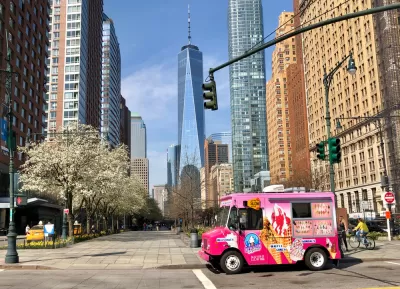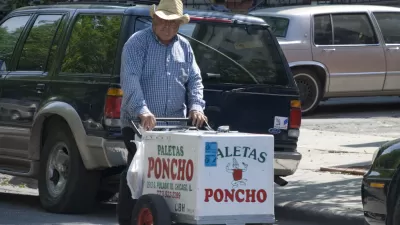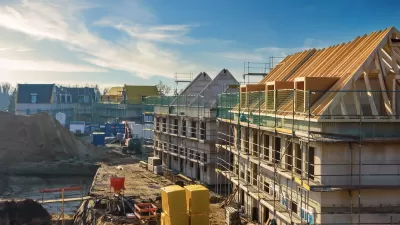From garbage pickers to tamale sellers, workers in the informal economy can account for half the workforce in developing cities. They should be respected as an important constituency.

Street Vendors contribute a vital part of city life, whether they're selling tea from the back of their bikes or carrying a cooler of tamales, they should be treated as an important resource Tanvi Misra argues in a piece for CityLab. "And yet they face numerous barriers to economic, political, and social integration—many of which are set up by the city itself. This is a common state of affairs in the urban centers of developing countries, but it doesn’t have to be," Misra writes.
Cities could do a lot for these vendors, by giving out more permits, and having strict oversite and greater transparency to avoid the corruption that can be part of that process. "Informal workers—like street vendors, waste-pickers who earn money for recycling trash; people who make textiles, garments, shoes, electronics, and other products at home—make up 50 to 80 percent of employment of cities in developing countries," Misra reports.
A World Resource Institute paper suggests three strategies to aid this vital part of cities:
- Increased access to public resources
- Revised laws to include informal workers in decision making
- Greater integration of informal workers into the local government
FULL STORY: Why Cities Should Support, Not Exclude, Street Vendors

Alabama: Trump Terminates Settlements for Black Communities Harmed By Raw Sewage
Trump deemed the landmark civil rights agreement “illegal DEI and environmental justice policy.”

Planetizen Federal Action Tracker
A weekly monitor of how Trump’s orders and actions are impacting planners and planning in America.

The 120 Year Old Tiny Home Villages That Sheltered San Francisco’s Earthquake Refugees
More than a century ago, San Francisco mobilized to house thousands of residents displaced by the 1906 earthquake. Could their strategy offer a model for the present?

In Both Crashes and Crime, Public Transportation is Far Safer than Driving
Contrary to popular assumptions, public transportation has far lower crash and crime rates than automobile travel. For safer communities, improve and encourage transit travel.

Report: Zoning Reforms Should Complement Nashville’s Ambitious Transit Plan
Without reform, restrictive zoning codes will limit the impact of the city’s planned transit expansion and could exclude some of the residents who depend on transit the most.

Judge Orders Release of Frozen IRA, IIJA Funding
The decision is a victory for environmental groups who charged that freezing funds for critical infrastructure and disaster response programs caused “real and irreparable harm” to communities.
Urban Design for Planners 1: Software Tools
This six-course series explores essential urban design concepts using open source software and equips planners with the tools they need to participate fully in the urban design process.
Planning for Universal Design
Learn the tools for implementing Universal Design in planning regulations.
Clanton & Associates, Inc.
Jessamine County Fiscal Court
Institute for Housing and Urban Development Studies (IHS)
City of Grandview
Harvard GSD Executive Education
Toledo-Lucas County Plan Commissions
Salt Lake City
NYU Wagner Graduate School of Public Service





























